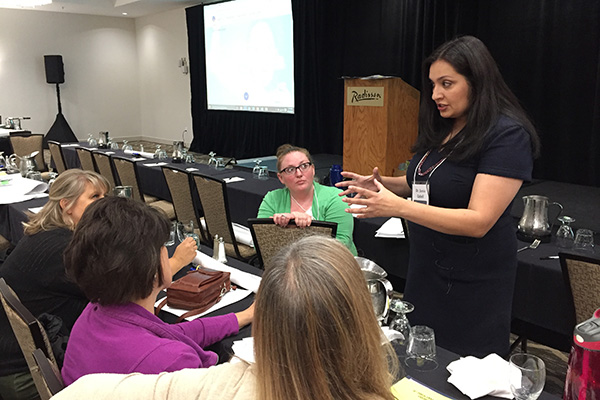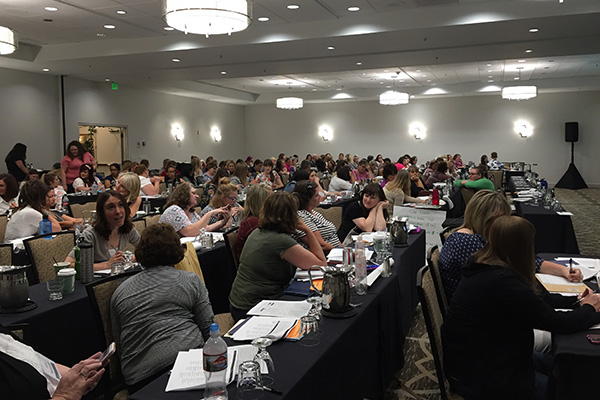20th Annual Emma Eccles Jones Early Childhood Symposium
Advancing Reading Fluency & Comprehension in K-3 Grades

Sonia Cabell, PhD
Fostering Students’ Reading Comprehension through Building Language and Knowledge in K-3 Classrooms
Abstract: This presentation will highlight the importance of building oral language skills and knowledge during the primary grades to support students’ successful reading comprehension. Research shows that a key way to build these skills is through content-rich, interactive read-alouds. Participants will learn techniques to provide high quality read-aloud experiences, including ways to support vocabulary learning, listening comprehension, and systematic knowledge-building in science and social studies domains.
Bio: Sonia Cabell is Assistant Professor in the College of Education and the Florida Center for Reading Research at Florida State University. Her work focuses on the prevention of reading difficulties, particularly among children living in poverty. She has authored approximately 30 articles in peer-reviewed journals, numerous publications for practitioners, a preschool vocabulary curricular supplement, and a kindergarten writing curricular supplement. She currently serves as Associate Editor for the scholarly journal Early Childhood Research Quarterly. Dr. Cabell is the Principal Investigator on a multi-million dollar grant funded by the Institute of Education Sciences, US Department of Education, testing the efficacy of the Core Knowledge Language Arts curriculum on children’s growth in vocabulary, comprehension, and knowledge as they progress from kindergarten through grade two.

Melanie Kuhn, Phd
Helping Students Develop “Knowledge of Words and the World”
Abstract: A major difference between successful readers and their less successful peers is exposure to oral and written language. Effective instruction can counter these differences. This presentation will look at the development of multiple reading elements across the elementary grades that underlie academic success. In so doing, it will present teachers with easy-to-implement instructional approaches to scaffold students’ literacy learning, vocabulary and comprehension development, and broader competence. Such instruction has the potential to decrease the achievement gap and create an environment that better assures students are capable of meeting curriculum requirements and literacy demands of the broader world.
Bio: Melanie R. Kuhn is The Jean Adamson Stanley Professor in Literacy at Purdue University. She began her teaching career in the Boston Public Schools, worked as a literacy coordinator for an adult education program, and spent three years as a clinician at an International School in England. She received her Ed. M. in Reading and Language at the Harvard Graduate School of Education, her M.Phil. in the Psychological Investigation of Intellectual Development at Cambridge University, and her Ph.D. in Reading Education from the University of Georgia. Her most recent book, Developing Fluent Readers: Teaching Fluency as a Foundational Skill with Lorell Levy, was published with Guilford Press. She has previously written two books on fluency, along with numerous articles and chapters. In addition to reading fluency, her research interests include literacy instruction for struggling readers, and the relationship between conceptual knowledge, vocabulary, and text comprehension. She has taught courses on reading methods, struggling readers, literacy assessment, and content area literacy instruction.
Event Photos



